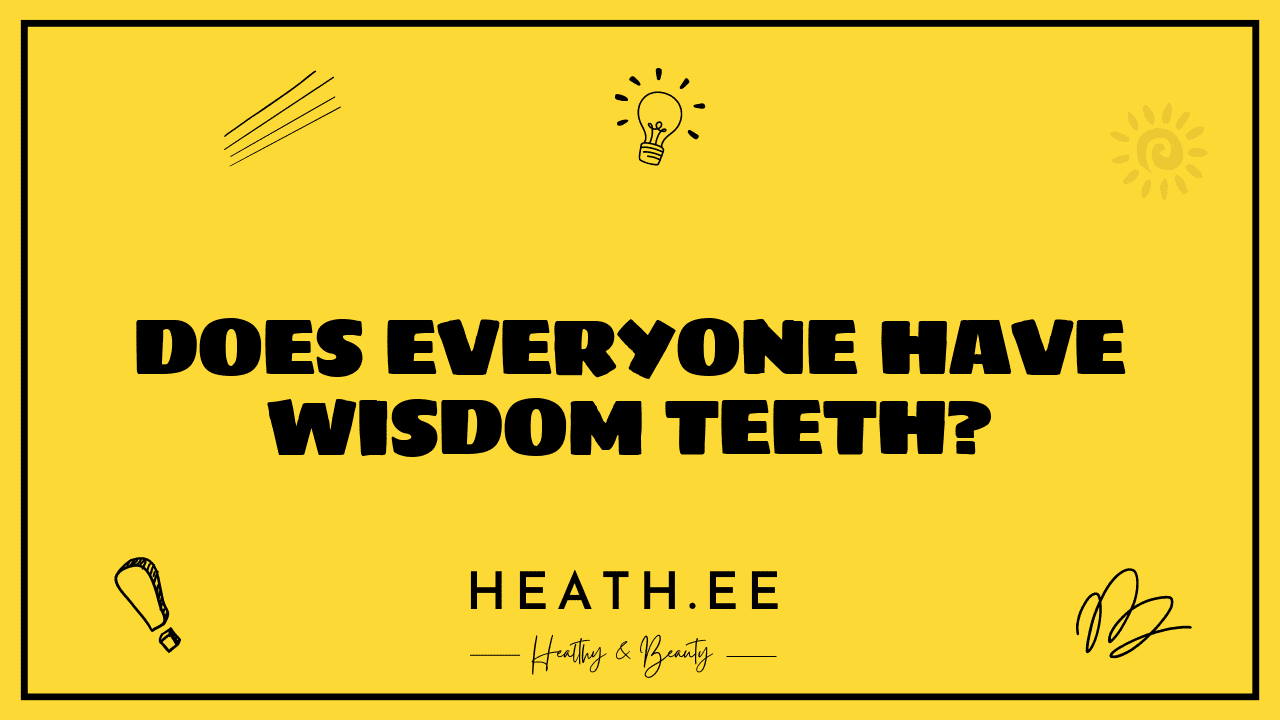When it comes to our teeth, wisdom teeth are often the last to arrive, and the first to go. But do we all have wisdom teeth? The answer is surprisingly complicated. In this blog post, we’ll explore the science behind wisdom teeth, why some people may not have them, and the best ways to keep your teeth healthy, no matter what.
What Are Wisdom Teeth?
Wisdom teeth are the last adult teeth to emerge, usually appearing in the late teens or early twenties. They are located at the very back of the mouth, behind the molars. They are also the most difficult teeth to clean, since they are so far back in the mouth.
Wisdom teeth are also known as “third molars,” and they can come in many shapes and sizes. Some people may have all four wisdom teeth, while others may only have one or two. Some people may not have any wisdom teeth at all.

Why Do We Have Wisdom Teeth?
The development of wisdom teeth is thought to be an evolutionary adaptation. In the past, our ancestors had larger jaws than we do today, allowing them to accommodate the extra teeth. As our diet changed and our jaws became smaller, our wisdom teeth became unnecessary.
In some cases, wisdom teeth can be beneficial. They can help to fill in gaps in the mouth, and they can provide extra chewing power. However, in most cases, wisdom teeth are unnecessary and can cause problems.
What Problems Can Wisdom Teeth Cause?
When wisdom teeth don’t have enough room to grow, they can become impacted, or stuck beneath the gums. Impacted wisdom teeth can cause a number of problems, including pain, infection, and damage to other teeth. Impacted wisdom teeth can also cause cysts and tumors, which can be dangerous.
In some cases, wisdom teeth can be removed to prevent these problems from occurring.

What Are the Signs of Impacted Wisdom Teeth?
If you have impacted wisdom teeth, you may feel pain in the back of your mouth, or you may experience swelling or tenderness. You may also notice a bad taste in your mouth, or a bad smell. If you experience any of these symptoms, it is important to see your dentist as soon as possible.
Who Is at Risk for Impacted Wisdom Teeth?
Most people are at risk for impacted wisdom teeth, but some people may be more likely to experience this problem. People who have smaller mouths or crowded teeth are more likely to have their wisdom teeth impacted. People who have family members with impacted wisdom teeth are also more likely to experience this problem.
How Are Impacted Wisdom Teeth Treated?
If you have impacted wisdom teeth, your dentist may recommend that they be removed. This is a relatively simple procedure, and it can help to prevent further complications.
In some cases, your dentist may be able to remove the impacted wisdom teeth without surgery. However, in some cases, surgery may be necessary.
How Can I Prevent Impacted Wisdom Teeth?
The best way to prevent impacted wisdom teeth is to visit your dentist regularly. Your dentist can monitor the development of your wisdom teeth, and they can recommend treatment if necessary.
It is also important to practice good oral hygiene. Brushing and flossing regularly can help to keep your teeth and gums healthy, and it can help to prevent impacted wisdom teeth.
Does Everyone Have Wisdom Teeth?
No, not everyone has wisdom teeth. Some people may have all four wisdom teeth, while others may have none. It is important to visit your dentist regularly to monitor the development of your wisdom teeth, and to take steps to prevent impacted wisdom teeth.
No matter what, it is important to practice good oral hygiene and to visit your dentist regularly. Doing so can help to keep your teeth and gums healthy, and it can help to prevent impacted wisdom teeth.



